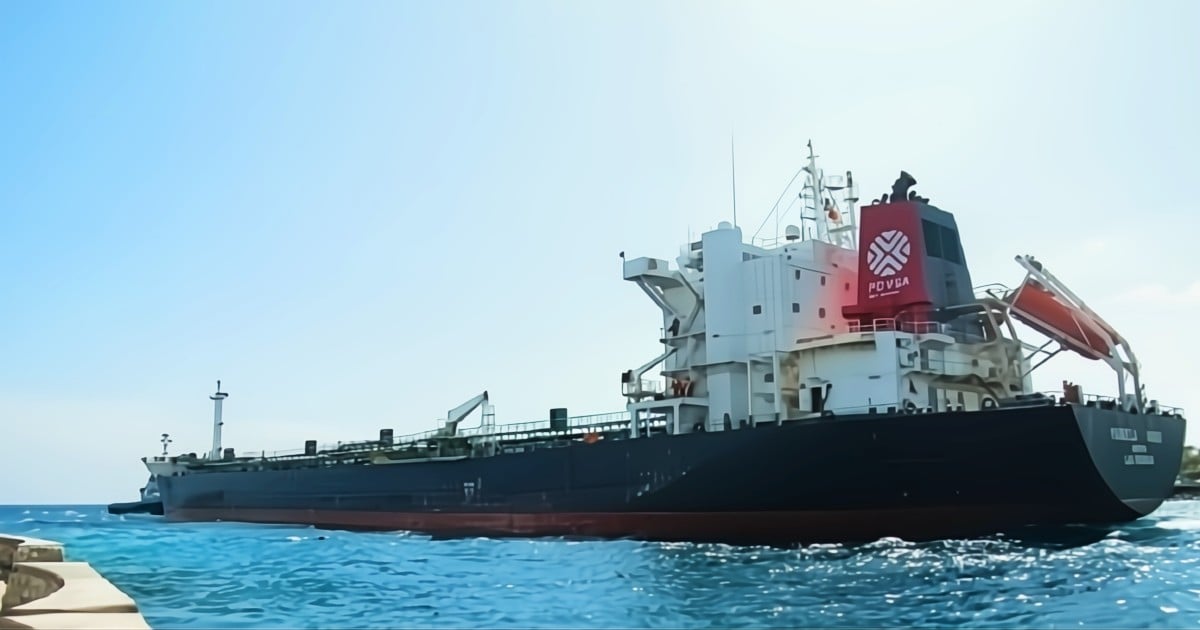
In November, Venezuela increased its oil exports to Cuba, reaching 38,000 barrels per day (bpd), a significant rise from the 28,000 bpd exported the previous month.
According to tracking data for vessels reported by Reuters, this increase reflects a renewed effort to strengthen the energy alliance between both countries, as the regime on the island faces a severe energy crisis.
It is worth noting that in October, the leader of that South American country, Nicolás Maduro, requested international support for Cuba following the widespread blackout that occurred, at a time when oil exports from Venezuela to the island had significantly declined.
So much so that in 2023, the average daily shipments were 56,000 barrels, yet this did not stop the massive blackouts in the largest of the Antilles, with the lack of fuel being one of the excuses.
At the same time, Venezuelan oil exports to Asia, its main market, increased by 17% compared to the previous month, totaling approximately 613,000 barrels per day.
In general, Venezuela's exports of oil and refined products reached an average of 974,033 bpd in November, the highest level since early 2020, despite the sanctions imposed by the United States since 2019 and the challenges facing the country's petroleum infrastructure.
The increase in exports occurred despite significant incidents, such as an explosion at one of PDVSA's main natural gas facilities, which affected the production of derivatives like methanol, according to the mentioned agency.
In addition, exports of by-products and petrochemicals fell to 330,500 metric tons, compared to 362,000 in October.
On the other hand, oil shipments to the United States under the license granted to Chevron decreased to 238,000 barrels per day, while exports to Europe increased from 31,000 to 85,000 barrels per day during the same period.
The incoming administration in the United States is expected to review its policies towards Venezuela, which could change the existing agreements.
Meanwhile, the Venezuelan Minister of Oil, Delcy Rodríguez, attributed the recent issues at PDVSA's facilities to alleged acts of "sabotage," following the arrest of 11 individuals in connection with the incident at the gas complex.
Venezuela also increased its imports of products such as heavy naphtha and gasoline, reaching 87,000 bpd in November, up from 81,000 bpd the previous month, as part of agreements authorized by the United States and European partners.
Frequently Asked Questions about the Increase in Venezuelan Oil Exports to Cuba
Why did Venezuela increase oil exports to Cuba in November?
Venezuela has increased its oil exports to Cuba in an effort to strengthen the energy alliance between the two countries. This rise comes amidst a serious energy crisis in Cuba, characterized by widespread blackouts affecting the population.
What is the impact of U.S. sanctions on Venezuelan oil exports?
The sanctions imposed by the United States since 2019 have hindered Venezuela's international oil trade, but Venezuela has managed to increase its exports despite these restrictions, reaching an average of 974,033 barrels per day in November, the highest level since 2020.
How does the energy crisis in Cuba affect its population?
The energy crisis in Cuba has led to widespread blackouts, severely impacting daily activities and generating increasing public discontent. The Cuban regime attributes this situation to a shortage of fuel and logistical issues in energy distribution, which has resulted in repression and social unrest.
Which other countries are helping Cuba with its energy crisis?
In addition to Venezuela, Mexico has also increased its oil shipments to Cuba, representing a significant part of the island's energy supply. Russia has also considered building a refinery in Cuba to ensure a more stable oil supply amid the energy crisis facing the Caribbean nation.
Filed under: